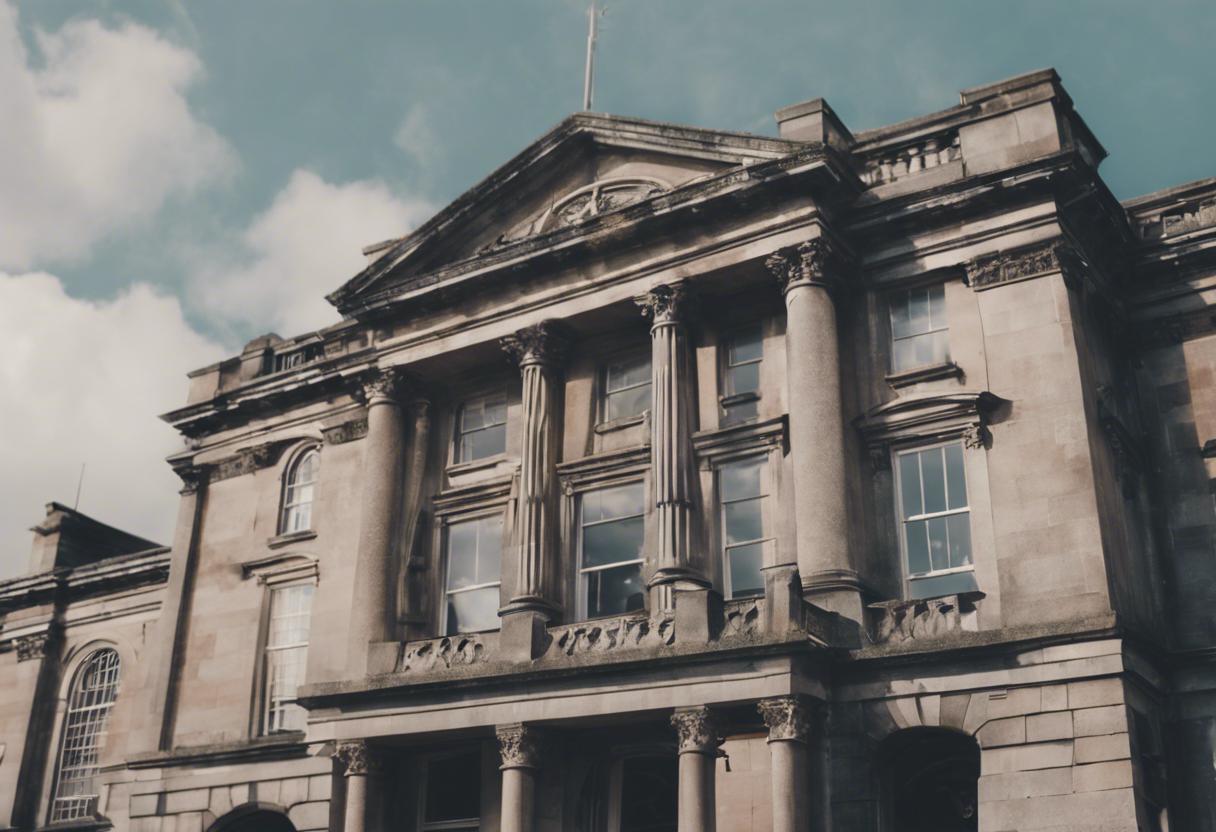The adoption of the ivy leaf as a memorial tribute to Charles Stewart Parnell, a year after his passing, was met with a variety of responses. Despite it being chosen by Parnell’s followers to symbolise “Ivy Day”, marked annually on October 6th from 1892, the act was seen as an affront by the faction supporting TM Healy, due to the lingering divisions caused by the Kitty O’Shea’s divorce.
Particularly, Catholic schools such as St Mary’s College in Rathmines saw children being forced to remove the ivy leaf, a symbol of the late Parnell, under threat of strict punishment—a contentious issue reported by the Evening Herald. In addition, there were accounts of children being made to unpin their ivy leaves from their coats on the streets, as in one case reported in Harolds Cross.
The controversy was not just limited to the streets and schools, but also extended into religious orders. As reported by Mrs Teresa Boyle of Leeson Street, Dublin, her three daughters, wearing the ivy leaf, allegedly experienced mistreatment at the hands of Sacred Heart nuns: the ivy leaves were torn off, trampled and then kicked into the street.
On a more positive note, women played a key role in fostering this tribute. Women from the ‘Ladies’ Parnell Grave Committee’ publicly asked their countryside ‘friends’ for packages of ivy leaves of any size. The leaves were then distributed among attendees at Parnell’s first-anniversary commemoration in Glasnevin.
The Freeman’s Journal, with strong Healyite influences, took a critical stance against Ivy Day. The paper noted somewhat condescendingly that Ivy Day was nothing more than the Irish version of Primrose Day, which was an annual commemoration for the well-known British Conservative Prime Minister, Benjamin Disraeli. They mentioned that unlike Disraeli’s beloved primrose, Parnell had a particular dislike for everything green. The Journal further claimed that the first Ivy Day, regardless of how it was boasted about in conflicting publications, was a disappointment. They compared the ill-attended event to ivy leaves, notably found adorning decaying trees and rickety walls rather than representing fervent passions and a robust cause.
However, as observed by future generations, the commemoration on the 6th of October witnessed increasing popularity over time. It even found a place in a short story Ivy Day in the Committee Room by James Joyce, which was based in 1904. Even after the passage of more than a century, the event continues to inspire gatherings such as the Ivy Day Symposium, held in Woodenbridge, Co Wicklow, over the weekend.
Interestingly, the same weekend also observes the birth anniversary of another well-respected Irish figure, Brian O’Nolan. He was born exactly 20 years minus a day after Parnell had passed away. An intriguing synchronicity that O’Nolan himself acknowledged in a 1957 column written under the pen name Myles na gCopaleen. His mention of Ivy Day became a perfect opportunity to refer to two of his favourite topics, pedantry and critique of Joyce.
O’Nolan usually criticised the burgeoning attention drawn by Joyce’s well-known works Ulysses and Finnegans Wake particularly from the American academia. His friend and occasional proxy, Niall Montgomery shared the same view. Thus, it often became challenging to identify who was expressing the criticism in the columns published in the late 50s. However, one would observe Myles, subtly suggesting that Joyce’s major talent was a knack for producing flawless Dublin dialogue.
He asserted in 1957 that he was horrified while perusing a newly published Penguin edition of Dubliners, due to an unexpected comma the editors, perhaps lacking in rhythmic sensitivity in London, had injected into one of Joyce’s character’s dialogue.
The purported travesty unravelled in the Ivy Day tale, as the political campaigners indulge in stout, and Mr Lyons enquires about the ownership of one of two bottles. The response from Mr Henchy is, “This, lad”.
The addition of the comma after ‘this’ filled Myles with considerable dread. “Certainly, had Joyce not wisely predeceased this event, the superfluous comma would have been his end. He would have retreated into a coma, wasting away from refusing even a teaspoon of brandy offered by someone like Mr Stuart Gilbert,” Myles apparently asserted.
In a 1959 column, it was Myles’s opportunity to convey conversation as overheard in Dublin’s watering holes. He had a character point out that “the previous Saturday marked Parnell’s one hundred and thirteenth birth anniversary.”
I cite this seemingly unnoteworthy excerpt here only to highlight that this Saturday happens to be the one hundred and thirteenth anniversary of O’Nolan’s birth.
When it comes to synchronicity, I must highlight that nowadays, the still recurring Ivy Day wreath-laying aligns with the nearest Sunday to Parnell’s birth anniversary. However, come October 6th, 2024, which handily falls on a Sunday, Taoiseach Simon Harris will be conducting the ceremony in Glasnevin at midday.

